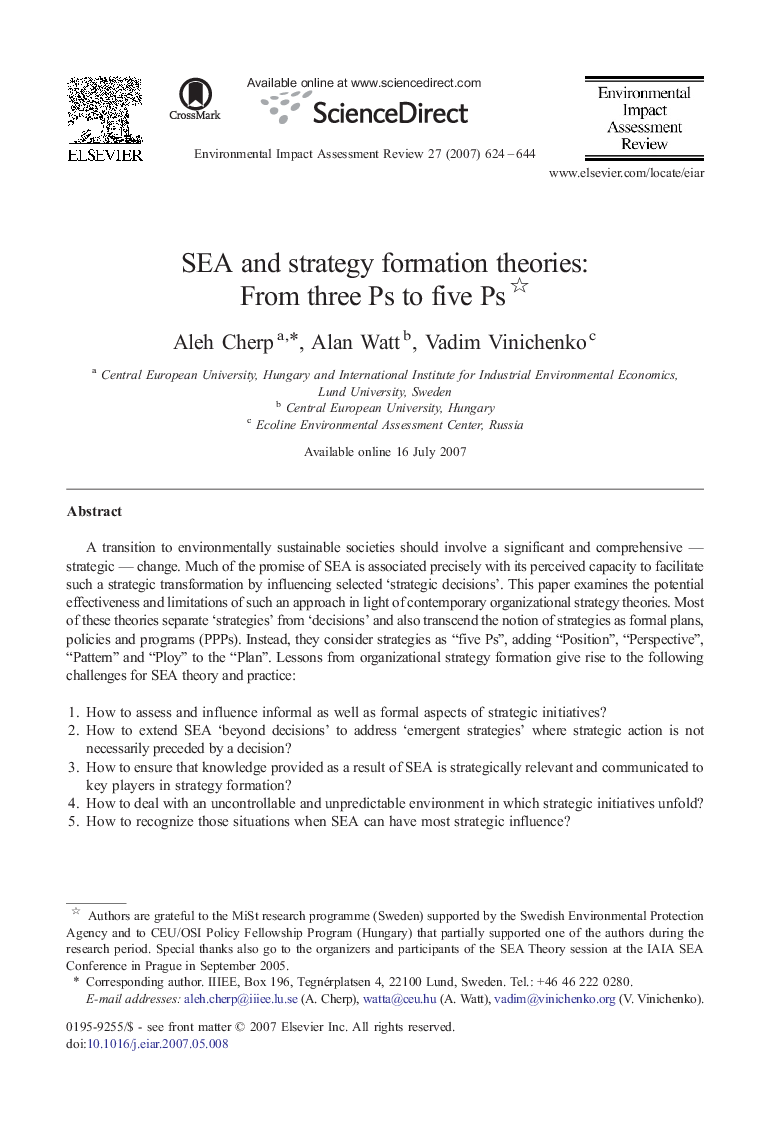| Article ID | Journal | Published Year | Pages | File Type |
|---|---|---|---|---|
| 1053367 | Environmental Impact Assessment Review | 2007 | 21 Pages |
A transition to environmentally sustainable societies should involve a significant and comprehensive — strategic — change. Much of the promise of SEA is associated precisely with its perceived capacity to facilitate such a strategic transformation by influencing selected ‘strategic decisions’. This paper examines the potential effectiveness and limitations of such an approach in light of contemporary organizational strategy theories. Most of these theories separate ‘strategies’ from ‘decisions’ and also transcend the notion of strategies as formal plans, policies and programs (PPPs). Instead, they consider strategies as “five Ps”, adding “Position”, “Perspective”, “Pattern” and “Ploy” to the “Plan”. Lessons from organizational strategy formation give rise to the following challenges for SEA theory and practice:1.How to assess and influence informal as well as formal aspects of strategic initiatives?2.How to extend SEA ‘beyond decisions’ to address ‘emergent strategies’ where strategic action is not necessarily preceded by a decision?3.How to ensure that knowledge provided as a result of SEA is strategically relevant and communicated to key players in strategy formation?4.How to deal with an uncontrollable and unpredictable environment in which strategic initiatives unfold?5.How to recognize those situations when SEA can have most strategic influence?This paper takes a step towards examining these challenges by exploring the intellectual history of SEA in light of the main strategy formation theories and by identifying directions in which the SEA discourse may be further enhanced to meet these five challenges.
